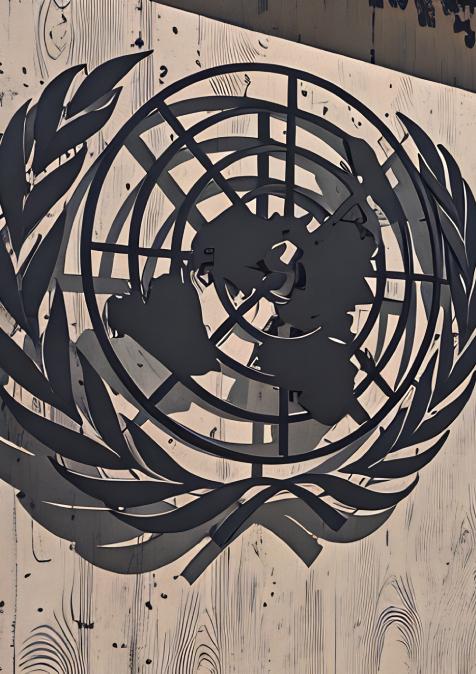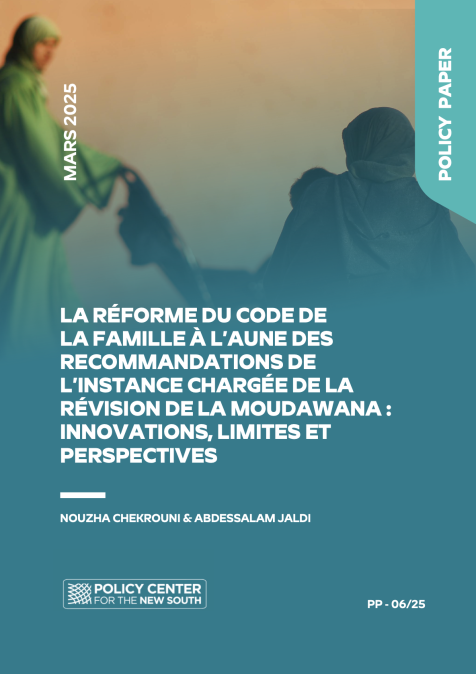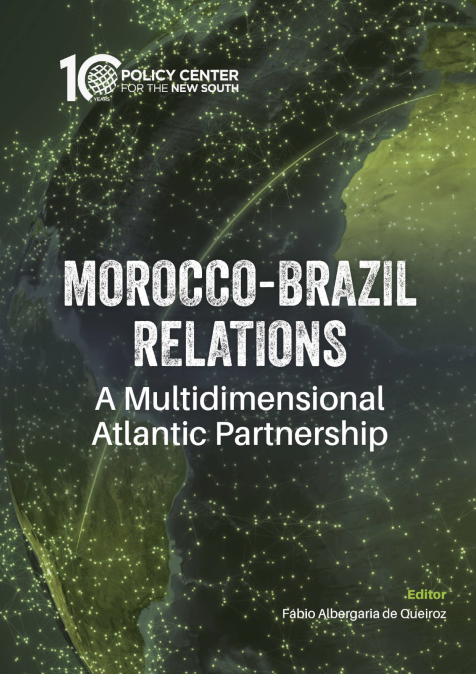Publications /
Opinion
Once again, dramatization and theatrical work on the world stage. Once again, a crisis turning into dramatic art, just to impress the audience, with exaggerated threats and statements. This was not a rehearsal of stage craft, but crude politics, a verbal confrontation of two egos - the President of the United States vs the President of Turkey. During a UN meeting in September of last year, Donald Trump stated that Recep Tayyip Erdogan “has become a friend”, and said he was convinced that now both are as close as they’ve ever been. Possibly those were just words, a sort of diplomatic backslap which the self-centered Erdogan certainly treasured. Now, between the two, there are rather confrontation, words of war and even the menace of a conflict.
One NATO member is actually marching his infantry, artillery and rocket launchers towards the positions of another Nato member, which was protecting the eternal enemy, the Kurds of the YPG (“People’s Protecting Units”). The YPG is a militant group related to the Kurdish PKK, the Revolutionary Workers Party, which for decades has been fighting for an independent state of Kurdistan. Turkey sees the presence of the Kurds on both sides of its 900 kilometers border with Syria as a threat to its territorial sovereignty. 2000 American soldiers, some of them members of the highly trained and motivated Special Forces, are trying to block or slow the advance of Ankara’s troops towards the northeastern Syrian town of Manbidj. The US soldiers are loyal, at least for now, to the courageous Kurds with whom they fought the evil Islamic State, liberating Raqqa street by street, house by house. The Pentagon was impressed, and even promised these gallant fighters to keep them under arms, incorporating them in a new force ready to contain Iran’s conspirators, the Hizbollah, or, if possible, the last survivors of al Qaeda or of the Islamic State.
Even if Washington changed its mind about the Kurdish force, Erdogan insisted that the GIs should get out of his way. For the moment, Ankara’s planes continue to attack other areas of Syrian territories, wherever they suspect the Kurdish enemy to be, and knowing that Damascus tolerated its illegal intrusions. Russia nodded its agreement, since none of Moscow’s planes went into action, and since the antiaircraft missiles of Moscow were not fired at Turkish jets either. Assad reacted only verbally to the invasion, since Syrian and Russian jets were, despite the peace gathering in Sochi, dropping bombs and possibly gas on its enemy from within—the enemy being stubborn and determined rebels, which are not ready to raise the white flag of surrender. The Syrian resistance fighters, near the town Marrat al-Numan (province of Idlib), hit a Russian fighter jet, a Suchoi Su 25, with a portable Anti aircraft missile. The plane crashed, and the pilot, a major, committed suicide with a hand grenade, which he exploded before his captors could approach him.
Turkey’s President was, for once, not involved. Erdogan, dressed in a combat jacket, encouraged his troops near the front lines on Syrian soil and threatened to extend his operation “Olive branch” if needed, sweeping all over the foreign land to crush the Kurdish secessionists. His tanks advanced to Afrin (25 miles north of Aleppo), much to the chagrin of another Nato member (Germany) which suddenly, through TV images, realized that Turkey moved into battle with tanks that Germany had delivered to the country ( 354 since 2005), the sophisticated “Leopard 2-A”. To avoid cries of indignation at home, the government in Berlin announced to the Turks and to the world that they were upset enough not to modernize these tanks as promised, and would not work on 120 American build M60 either. Trump, in the meantime, had given Ankara his word that the Pentagon would retake sophisticated arms the US had given to the Kurds, but apparently he forgot to tell his generals. Russian Foreign secretary Sergey Lavrov declared that the American support of the Kurds is “either a lack of understanding of the situation, or an absolutely conscious provocation”. Moscow therefore rejoiced Ankara, who was angered by Berlin and Washington (its Nato-Allies after all) and was in need of new friends. Not long ago Moscow was so upset with Turkey that it called all its tourists back home, because the Turks shot down a Russian fighter jet which intruded into national airspace. But that is now history, downgraded from criminal act to an unfortunate incident.
The “New York Times” noted that as often in Syria, ”the US seemed mostly a bystander (…) and since it has receeded, Russia has filled the vacuum, gaining influence and rehabilitating its relationship with Turkey”. Moscow stabilized its presence in the Middle East, and that was for decades one of their goals. This issue has already been documented in June 2016 by Abdelhak Bassou, in a document published by the OCP Policy Center : ”La Russie et la crise syrienne: le comeback de l’héritier de l’URSS et le changement de la donne en Syrie”. The obvious attempts by the Soviet Union president Vladimir Putin to make Russia great, feared and respected once more on the global scene through the annexation of the Crimea and the partial occupation of Ukraine were just the “hors d’oeuvres”. While Erdogan’s soldiers moved towards Manjib, where American Gis, the militants of the YPG and 10 000 members of the “Syrian Democratic Front “are entrenched (many of them are Kurdish fighters as well), Mr Putin tried his luck as a peacemaker in his city of Sochi. The Russian President invited the actors of the seven year long war in Syria, to his stage in Russia, and most delegates reached the conference hall- the largest Syrian opposition group though declined after they discovered regime symbols and the flag of the Assad regime. They were also upset about the continued bombings of rebel held towns and regions, which were, to them, if not directed by the Kremlin directly, certainly were by their satellite guidance systems. The conference ended, as the British “Guardian” judged, as “tethered on farce”. At the end Putin conceded that the United Nations were still responsible for drafting a new constitution and the mediation process. He has other immediate and more important matters to attend -intensify his electoral campaign for the Presidency.
Officially, Moscow intervened into the Civil war in the fall of 2015 to stabilize its faltering ally Assad. Yet , the Russians did not send almost 50 000 soldiers into battle, or direct their jets onto rebel targets in more than 28 000 aerial missions, or complete 90 000 air strikes onto targets on the ground, only to save Mr Assad, their only Arab ally in the Middle East. The cold war complicities of Moscow with nations like Algeria or Libya are now gone. Apparently, Putin is dreaming of returning to glorious Cold war days of the Soviet Union, and to its power. That’s one reason why he could not afford to lose neither Russia’s only naval base at the Mediterranean sea (Tartous), nor its major airbase Khmeimim, in striking distance of Nato -ally Turkey. But more important, Moscow remains determined to expand its influence in the region and the world. Russia projects power: it’s the second largest nuclear nation on earth, member of the UN Security Council and major producer of oil and gas. In his thoughtful “Policy Paper”, published in June 2016, author Abdelhak Bassou noted that the intervention of Moscow in Syria, supporting a beleaguered and struggling Assad with its own troops, signified a fundamental change in Moscow’s foreign policy-since it is ”only to Russia, and not the USSR, to intervene for the first time this far from its borders”. The question raised by author Bassou remains, so far, unanswered and this questions is: ”do they have the means for their politics of grandeur?”. Washington, rather passive in its Middle East involvement (except the recognition of Jerusalem as capital of Israel) apparently will challenge a belligerent Moscow as Ronald Reagan did during the infamous Cold War years. He armed the US and armed again, driving the enemy in Moscow into despair, forcing the communist enemy to compete and risking the nation’s economic collapse. Donald Trump, in early days, charmed or impressed by Vadimir Putin, has obtained a dramatic defense budget of 639.1 dollars for 2018, and is projecting 716 billion for the fiscal year 2019.
The equally planned and massive modernization of the nuclear arsenal of the US will require, between 2017 and 2026, an estimated 400 billion dollars. Will Moscow follow, or limit itself to childish and yet dangerous games of provocation (buzzing American fighter jets, or Navy destroyers in the Black Sea, deploying their spy ship ”Viktor Leonov” off the Eastern coast of the US ,eavesdropping off an American submarine base..). Abdelhak Bassou argued that the involvement in the Syrian war “carries great risks: in case of success the rewards are substantial and important, but in failure as well”. Putin demonstrated his determination to remain reliable to his allies, unlike Washington, which changes its foreign policy positions since Trump is in power, as often as the President’s nightly twitter announcements. Yet, is the devastation of a noble and historic nation, the destruction of its villages and towns, resulting in ten million tormented Syrian refugees, the reflection of the human spirit, or just the expression of barbaric, crude power, used in an attempt to recapture the spirit of history ,the assumed greatness of the Soviet Union ? Obviously we re-enter a vicious cycle. Democracies had put ad acta, the Cold War. The Pentagon just notified the world in a 75 pages document about its newest and expected plan of deterrence: the development of smaller, tactical, nuclear warheads to be used for limited war. North Korea comes to mind, but Russia, as the document explains, was the real reason for the modernization. The Pentagon planners believe its enemies, among them Iran and China, are not sufficiently afraid of the present aging nuclear arsenal, since Washington would probably shy away from a big bang, which could mean the end of our world. The blitz will be smaller, enough to annihilate Pyongyang…or St. Petersburg.







